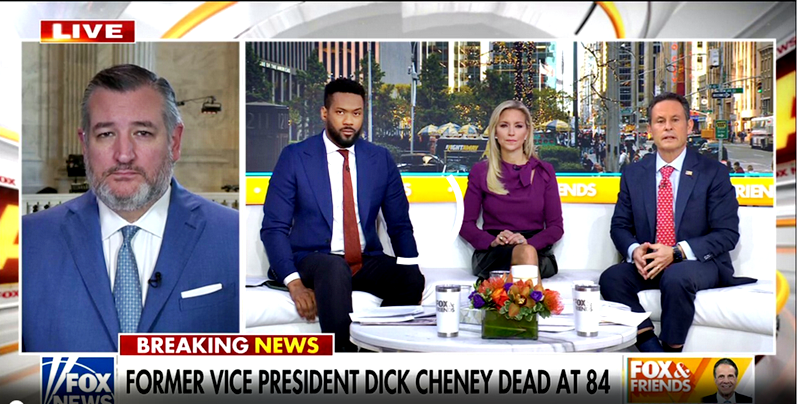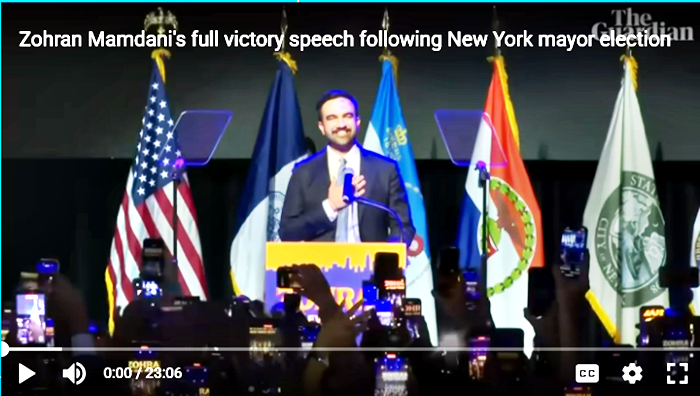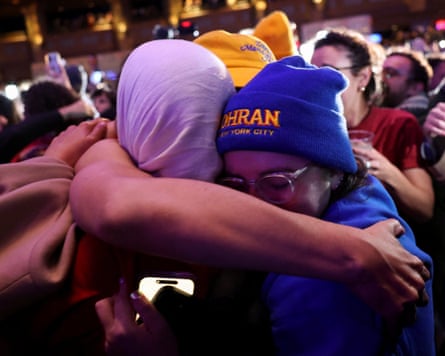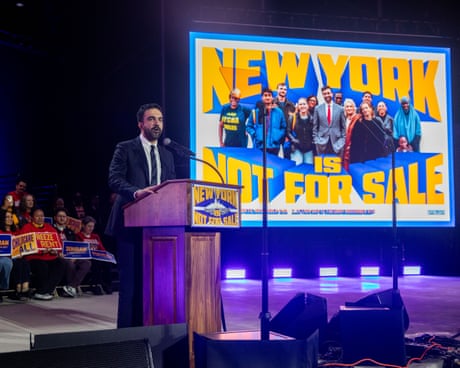Zohran Mamdani elected mayor of New York on winning night for Democrats

By Guardian - Anna Betts in New York - Wed 5 Nov 2025 02.37 GMT
Democratic socialist, 34, becomes city’s first Muslim mayor as Democrats triumph in several other key races
- Tracker: live NYC mayoral election results
- New York mayoral election – live updates
- Share your views on the New York mayoral election results
Democratic nominee Zohran Mamdani was elected on Tuesday as the 111th mayor of New York City, defeating the former governor Andrew Cuomo and Republican candidate Curtis Sliwa and making history as the city’s first Muslim mayor.

The 34-year-old democratic socialist and state assembly member from Queens, secured victory with more than 50% of the vote. Cuomo, 67, finished second with just over 40%, while Republican candidate Curtis Sliwa received just over 7% of the vote.
Mamdani’s historic victory was announced amid a slew of Democratic wins across the country, with Congresswoman Abigail Spanberger becoming Virginia’s first female governor, Mikie Sherrill defeating her Trump-backed gubernatorial opponent in New Jersey, and California voting for Gavin Newsom’s push for redistricting maps that would yield five new congressional seats for the party.
The crowd at Mamdani’s election night party at the Brooklyn Paramount in downtown Brooklyn erupted after the Associated Press called the race in his favor. People cheered and hugged each other at the news.
In addition to being New York City’s first Muslim mayor, Mamdani is also the first South Asian mayor and the youngest mayor in more than a century.
The current mayor, Eric Adams, who had campaigned for a second term as an independent, dropped out of the race in September.
When Mamdani launched his campaign for mayor last fall, he was a relatively unknown state lawmaker. But his message, centered on affordability, along with his buoyant jaunts throughout New York City, quickly gained traction and resonated with thousands of New Yorkers. His platform called for freezing rents on rent-stabilized units, building more affordable housing, raising the minimum wage to $30 an hour, making buses free, increasing taxes on the city’s wealthiest residents and more.

Supporters celebrate as initial projections of Mamdani’s win are declared, at Brooklyn Paramount in New York on 4 November. Photograph: Shannon Stapleton/Reuters
Fueled by small-dollar donations, tens of thousands of volunteers, a savvy social media presence and a message of change, Mamdani’s grassroots campaign built momentum through the spring. That energy culminated in a decisive win in the June Democratic primary, in which he defeated Cuomo by nearly 13 points, stunning the city’s political establishment by galvanizing a diverse coalition that included many young and first-time voters.

Read more
After his primary defeat, Cuomo, who resigned as governor of New York in 2021 after more than a dozen women accused him of sexual harassment (allegations which he has denied), chose to stay in the race and launched an independent campaign against Mamdani, seeking to pull off a political comeback. But polls throughout the summer and fall consistently showed Mamdani maintaining a comfortable lead over Cuomo and Sliwa (and Adams before he exited the race).
In recent months, Mamdani and Cuomo have frequently sparred over their records, qualifications and ideas to improve the city. Mamdani has accused Cuomo of being beholden to wealthy donors and of serving corporate interests, while Cuomo has dismissed Mamdani as too inexperienced to lead the city.
During the October mayoral debates, Mamdani, Cuomo and Sliwa traded jabs and clashed over a variety of local, national and global issues, including crime, policing, Israel, affordability, housing and transportation, as well as who would best navigate relations with the Trump administration.
